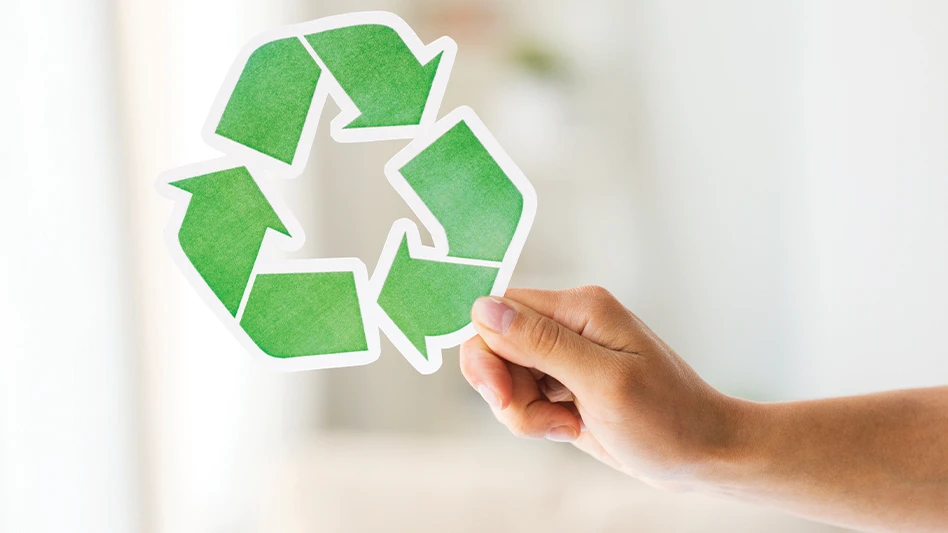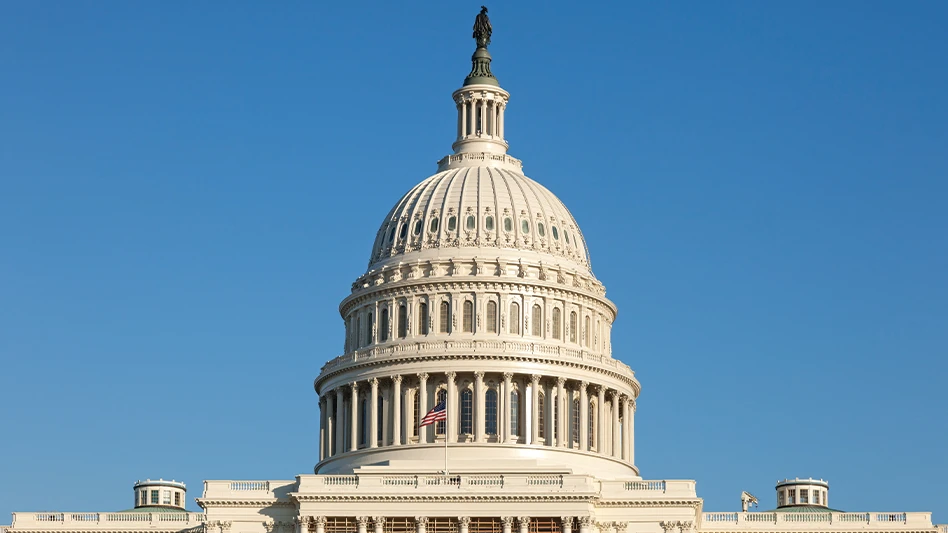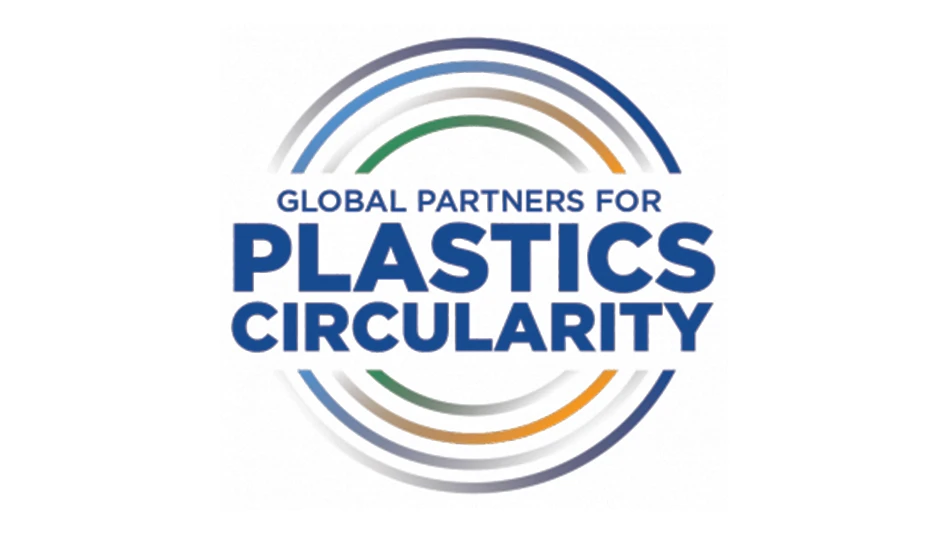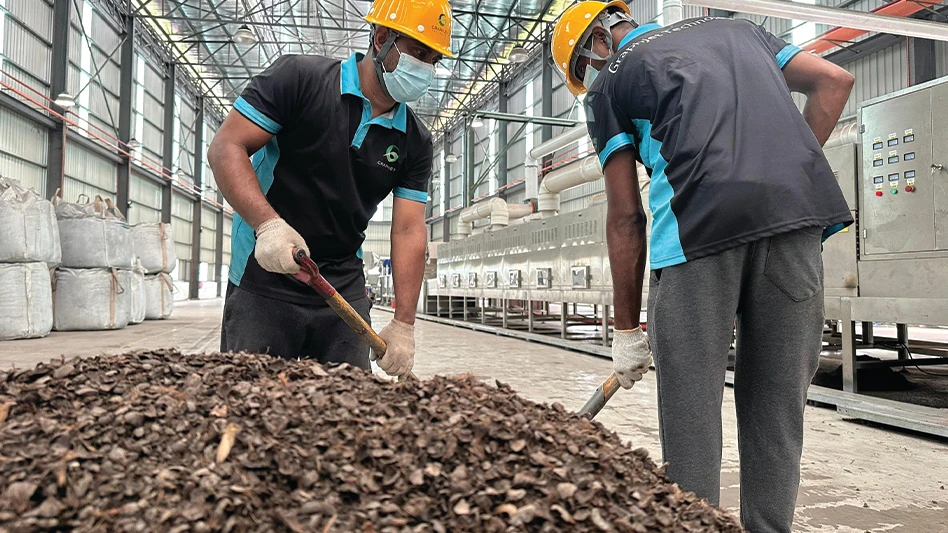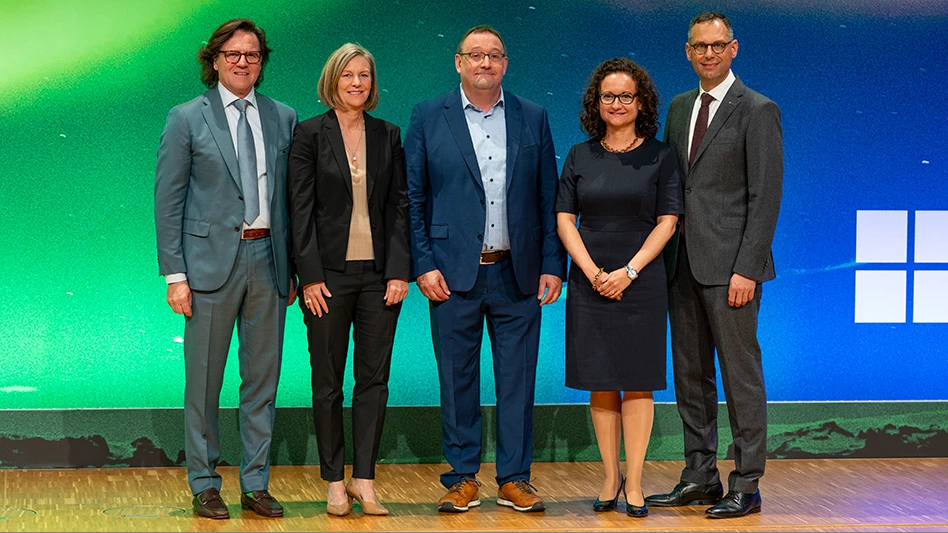
Photo courtesy of BDSV
After a two-day October meeting of its membership in Munich, the Düsseldorf, Germany-based Federal Association of German Steel Recycling and Disposal Companies (BDSV) characterizes its sector as “pessimistic about the coming year,” adding that the nation’s “excessive bureaucracy represents an obstacle to investment for many companies.”
Some 500 people gathered for BDSV's 2024 Industry Meeting event in Munich on Oct. 9-10, which adopted the theme “Minimize CO₂ – Maximize Steel Recycling.”
“The economic outlook for 2025 remains bleak [and] the acceleration of [government] approval procedures is more urgent than ever," BDSV says following the meeting and as well as a September survey of its members.
“The industry survey shows that the mood of the respondents has deteriorated further and that about two-thirds of the member companies surveyed assess their business situation in 2025 worse than this year. Only 2 percent of member companies expect a better business situation in 2025.”
The same survey indicates just 15 of responding companies are planning higher investments in the medium term, the group says, down by about 13 percent compared with last year.
Other business issues cited include uncertainty about economic development, the shortage of truck drivers, high transport costs, low material inflow, rising production costs and battery fires.
According to BDSV, the German economy has been "stagnating and has been treading water" since spring 2022.
"While the difficult situation in the construction industry led to a marked reduction in the inflow of scrap, steel consumers reduced their production because they were unable to identify buyers for their products," the group continues. "This has resulted in a noticeable reduction in production scrap.”
However, over the first eight months of 2024, crude steel production in Germany increased by 4 percent, though BDSV says that rise compares with “a weak level” of output in the first eight months of 2023.
With improved crude steel production in Germany came in increase in scrap consumption.
“Supply and demand remain balanced at a low level," BDSV says. "In view of the lack of investment momentum in the German economy and the stuttering transformation of industry, the demand for scrap will not overwhelm the precarious supply.”
Also at the two-day meeting, Germany-based consulting firm Fraunhofer IML made a presentation on the results of a study it conducted on scrap logistics.
BDSV says that analysis has shown the predictability of transport is becoming "increasingly relevant" for recipients to evenly utilize processing and steel production facilities and keep inventories low.
“The increased use of [multicar] trains between hubs and steel mills or seaports enables predictable and reliable transport," the group adds. “The aim is to shift more scrap transport from road to rail and make an additional contribution to reducing CO₂ emissions in steel production processes.”
Politically, the BDSV is calling for a low electricity price to secure Germany as an industrial location while adding that political support is called for to promote resource-saving production concepts.
The trade group also is urging the preservation of existing metal recycling facility sites.
“Since new permits are associated with high regulatory requirements, the preservation and use of existing areas for the processing of steel scrap is crucial to ensure the long-term competitiveness of the steel recycling industry,” BDSV says.
It is one of the aspects in which BDSV, along with the Berlin-based Association of German Metal Traders and Recyclers (VDM), is calling for an "urgent" adjustment of the environmental approval procedures in the steel and metal recycling industry. The two associations are advocating for a “fast lane” for the approval of projects that reduce CO₂ emissions.
“The transformation of the European Union to climate neutrality by 2050 as part of the ‘Green Deal’ poses enormous challenges that can only be overcome through significant investments and technological innovations,” BDSV and VDM stated in a letter to members of the Bundestag, Germany’s legislature.
“But the increasing regulatory requirements are inhibiting companies’ willingness to invest. Approval procedures, which often take two years or more, lead to unsustainable cost increases and significantly affect the international competitiveness of the industry.”
At the meeting, the board of directors of BDSV welcomed Claudia Conrads as its CEO effective Nov. 1 and confirmed new three-year terms for President Andreas Schwenter, Vice President Stephan Karle and Treasurer Stefanie Gottschick-Rieger. Conrads will take over the management of the association and the office together with Managing Director Guido Lipinski.
Latest from Recycling Today
- Speira commissions new furnace in Germany
- ABB report portrays paper sector circularity, emissions reduction
- RMDAS and Davis Index numbers portray stalled ferrous market
- Attero adds NGO veteran to its board
- AMCS launches the AMCS Platform Winter 2024
- Cirba Solutions celebrates construction milestone at Ohio plant
- Study outlines plan to transition US plastic packaging, textiles to circular systems by 2040
- WM releases 2024 recycling report
